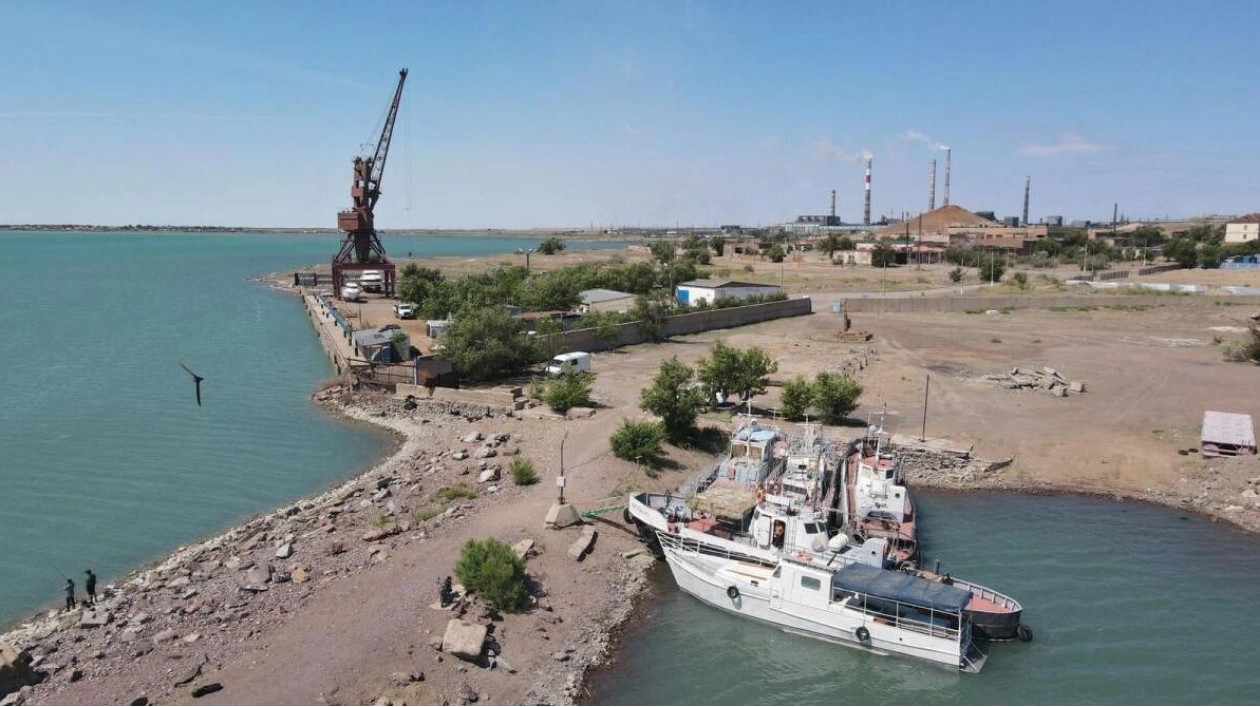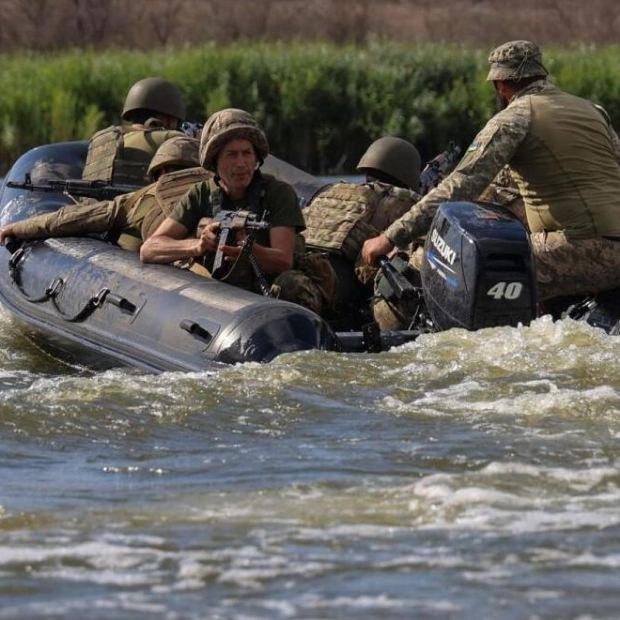From above, with its azure waters extending into the arid desert in a crescent shape, it's clear why Lake Balkhash is known as the 'pearl of Kazakhstan'. However, pollution, climate change, and overuse are endangering this unique body of water. One part of Balkhash, the largest lake in Central Asia after the Caspian Sea, contains salt water, while the other part is fresh. In this unusual setting, rare species have thrived. Until now.
Fisherman Alexei Grebennikov, speaking from his boat on the northern shores that alternate between salt and fresh water, expressed his concerns to AFP: 'All the troubles of Balkhash are right before my eyes.' He lamented the dwindling fish population and the silting of the lake, calling it catastrophic. A dredger meant to clear the small harbor near the industrial town of Balkhash, which appears frozen in Soviet-era time, lies rusting and unused.
Grebennikov recalled the past when tourists came for underwater fishing, saying, 'Now the place has turned into a swamp.' In town, scientist Olga Sharipova is studying these changes. 'Balkhash is the country's biggest fishery. But fish numbers decrease as water levels drop, disrupting reproduction conditions,' she explained to AFP. The lake's level is perilously close to a critical threshold that could lead to disaster.
This spring brought an unexpected relief with massive floods allowing the diversion of 3.3 million cubic meters of water to Balkhash. However, this has not altered the long-term declining trend. Sharipova noted that the lake's level has been dropping since 2019, primarily due to reduced flow from the Ili River, sourced from China. Central Asia's great lakes, often referred to as enclosed seas, face a similar concerning fate.
The Aral Sea is nearly gone, and the Caspian Sea and Lake Issyk-Kul in Kyrgyzstan are also in peril. These bodies of water, isolated on arid lands and vulnerable to disruptions exacerbated by global warming and human activities, face increasing evaporation due to rising temperatures and melting glaciers.
The economic significance of Balkhash is amplified by its location on China's Belt and Road Initiative. A 2021 Oxford University study in the journal 'Water' linked the lake's decline to China's overuse of the Ili River for agriculture. The study warned that if the hydrological regime of the Ili remains unchanged, future water supplies will be increasingly strained.
Kazakhstan seeks an agreement with China on water sharing, crucial for preserving Balkhash. The lake also suffers from pollution including heavy metals and pesticides. The town of Balkhash, home to Kazakhstan's largest copper producer, Kazakhmys, faces high lung cancer rates due to pollution. Despite sanctions for environmental violations, Kazakhmys denies being the main polluter and pledges to reduce pollution through equipment upgrades.
Meanwhile, the plant continues to release industrial waste into another nearby body of water.






